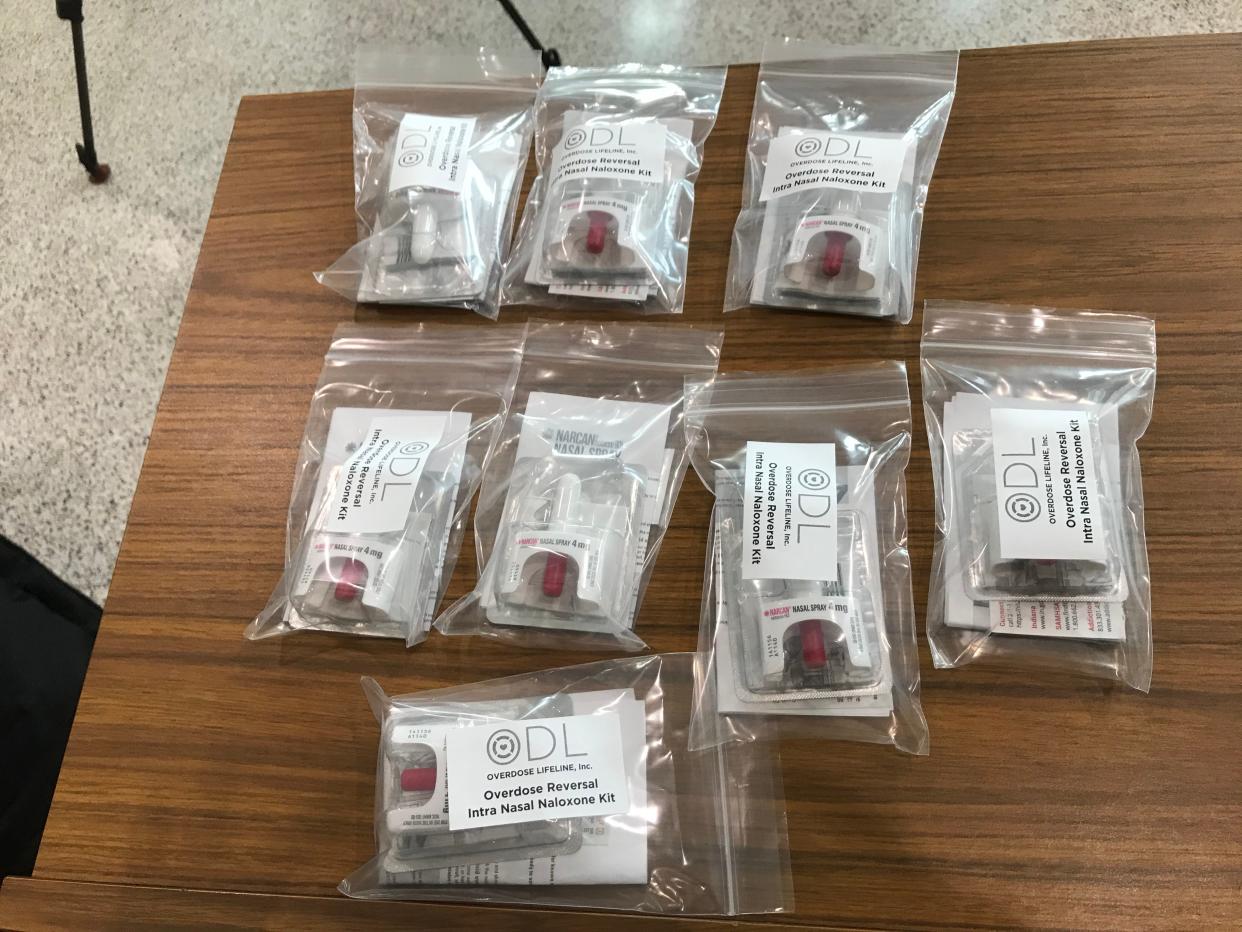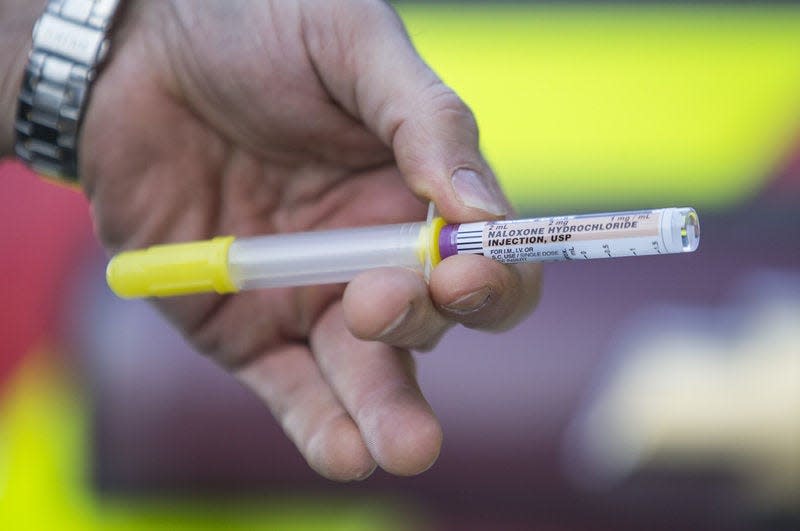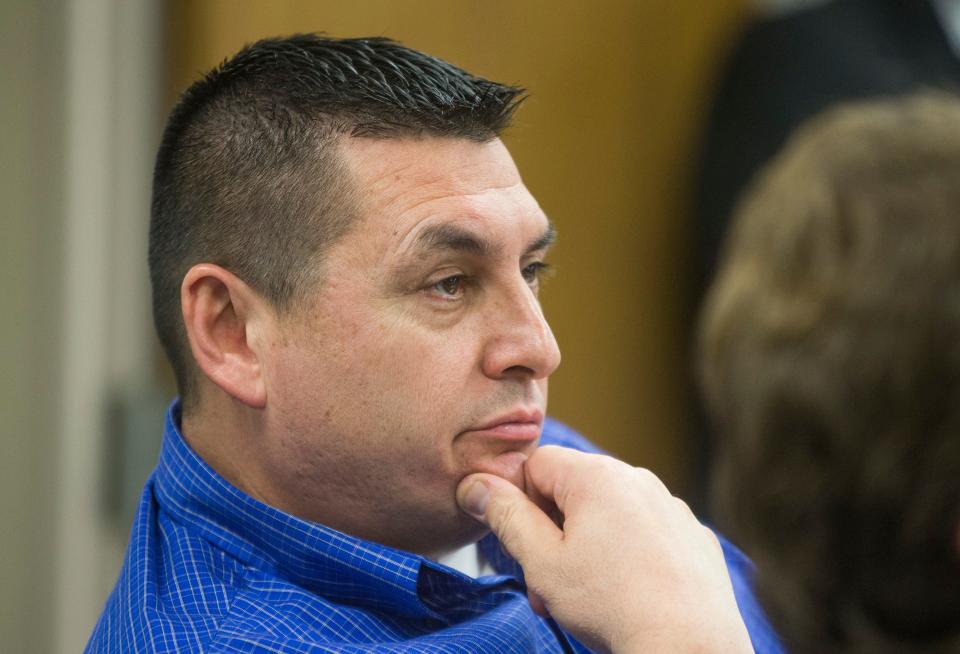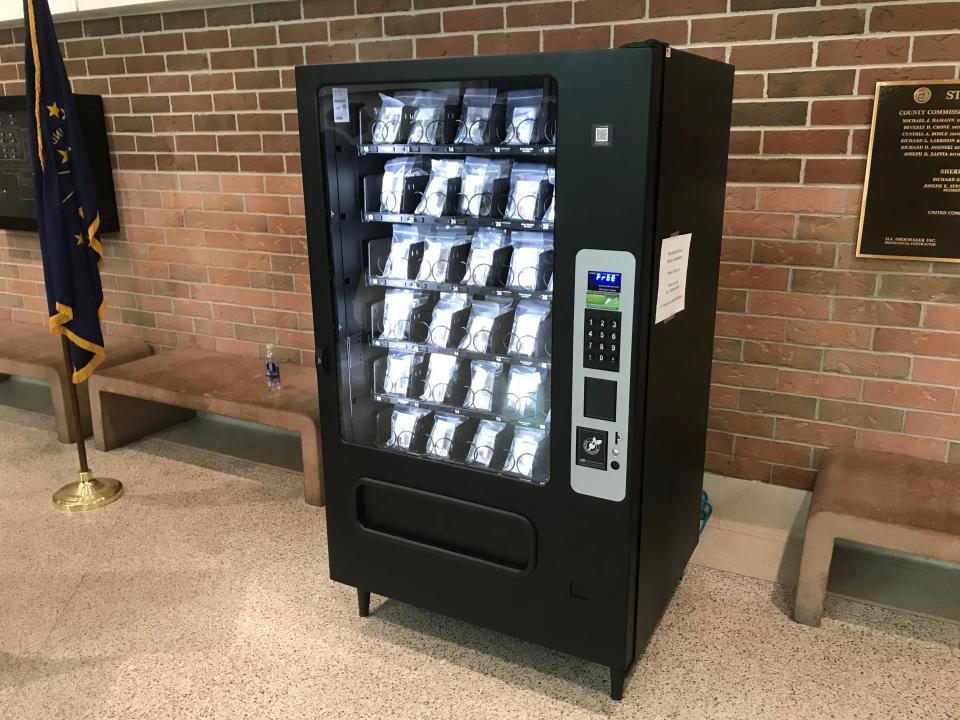Drake holds up overdose grant. Claims health department 'equity' language is Marxist.

St. Joseph County Council member Amy Drake says language at a page of the county health department’s website is “Marxist/critical race theory.”
The page talks about equity, a term that Drake and a fellow Republican on the council, Dan Schaetzle, say sometimes equates to troubling political ideology.
That’s why the two led their fellow three Republicans in a 5-4 vote on May 9 to table $100,000 in funding that the health department secured from a grant to expand awareness and access to naloxone, an opioid reversal medicine that saves people from overdose deaths.
The council will hold a special meeting at 6:30 p.m. May 23 in the County-City Building to reconsider the issue. County commissioners had signed a contract to begin the grant program on Jan. 24, and the grant has already gained approval from the health board. Now, as expenses are already being incurred, the program just needs the council’s approval to receive the outside funding.
Health officials say they have a May 31 deadline, or they risk losing grant dollars.
After this story originally appeared online Thursday morning, Drake and Schaetzle said they've spoken with staff and now are inclined to vote for the grant.
“I have no problem with the overdose program," Drake said. “I have no problem providing better access to Narcan in our community.”
The problem, she claimed, is that the grant “is also designed to push a political ideology — in this case, it’s equity.”
More than once, the county’s health officer, Dr. Joseph Cerbin, responded at the May 9 meeting that the health department’s intent isn’t to be political.
The grant is from the National Association of County and City Health Officials, or NACCHO.
The largest part of the grant raises awareness among people who see themselves as recreational drug users while also expanding into rural areas of the county that now have the least access to the naloxone boxes, according to Robin Vida, the health department’s director of Health Outreach, Promotion, & Education, or HOPE.
Narcan is a brand of naloxone.
Last year, Vida said, 100 people in the county died from overdoses.

How do you define equity?
While county health officials refute Drake’s claims about political ideology, Drake said she remains troubled by language at both the health department’s and NACCHO’s websites, labeling them “Marxist/critical race theory.”
In an email to Cerbin and Vida, which she shared with The Tribune, Drake points to “problematic equity/structural racism language” at a health department page (linked here in this story online) that offers links, resources and a glossary of terms through its Health Equity, Epidemiology and Data program.
The glossary defines “health equity” as “Attainment of the highest level of health for ALL people.” “Health inequity” is defined as “The uneven distribution of social and economic resources impacts an individual's health.” The glossary also defines terms such as “structural racism,” “health disparity,” “obstetric violence” and “discrimination.”
If health officials would remove that part of the website and “clarify that’s no longer where they stand,” Drake said, “then I could get behind you.”
Schaetzle also said he has “serious concerns” with the page on the website.
“The word (equity) can have other meanings, and the language on the website seems to cling with those more radical meanings,” he said.
Drake claims a redistribution of access
Drake dove deeper as she read her argument to the council: “Equity is a political term that advocates giving one group more, one group less, or taking away from one group to give to another. Equity comes down to a redistribution of resources obliterating meritocracy and reverse discrimination. An example of this was at the height of COVID. New York, Minnesota and Utah issued guidelines for distributing monoclonal antibodies that heavily prioritized racial and ethnic minorities. It’s obviously wrong to redistribute people’s access to health care based on race. We don’t want to accept racism in any form. Equity policies are currently being put into place to dismantle what those on the political left call systems of power and white supremacy. Our health department website gives credence to those ideas … challenging America’s current government and structure. I hope it (the page on the website) will be taken down.”
Council member Diana Hess, a Democrat, countered that Drake missed the definition of equity and added that it “means an opportunity for all people to be treated equally.”
Fellow Democrat Bryan Tanner said equity is about being “fair and impartial.”
Noting the grant’s bipartisan support from other county officials, Tanner said, “If anyone is introducing politics, it is you, Councilwoman Drake.”

Hess later said that the county was potentially leaving $100,000 behind “because of two people on this council who, really, are leading the way, I think, in a very extreme way.”
Council Democrat Mark Catanzarite argued that there could be more deaths if the program funding is somehow stalled. But Schaetzle countered that “hundreds of people are not going to die because we tabled this. … We have the doses. They’re out there.”

“I still have a couple of questions I’d like to get answered,” Schaetzle said. “That’s how close I am.”
On Thursday morning, however, Schaetzle told The Tribune that staff had answered his questions, and he now realizes that the department cannot separate the grant's required trips to mentor two other communities and to a conference where he'd seen the equity language. But because the good of the grant program outweighs his concerns, he said, he'll vote yes.
Drake said Thursday that the vote remains a tricky one for her. But she said she has since spoken extensively with Cerbin and said: "I'm confident Dr. Cerbin can help us transition us from politics to positive public health outcomes. I will take Dr. Cerbin's assurances in good faith and most likely vote to pass the grant."
Naloxone for rural areas, law enforcement
When asked, Cerbin said about 3,900 doses of naloxone had come in the last shipment. The grant doesn't pay for naloxone doses, Vida said, but it helps to expand access to those doses by providing self-serve naloxone boxes.
There currently are 15 of the boxes in the county. Vida said there is a need for them in more rural areas. She didn’t speak of reaching certain races or ethnicities.

Specifically, Vida said, the department has spoken with officials about placing naloxone boxes where there have been a high number of ambulance runs for overdoses. They include the outside of the city police department at Mishawaka City Hall as well as in Walkerton, New Carlisle, Osceola, and Penn and Harris townships.
“Our intention, when we talk about equality, is to be more inclusive,” he said.
That, he said, includes law enforcement, schools, the jail and “addicts so they can mentor people to get off of these drugs.”
Dec. 6, 2021: Indiana's first Narcan vending machine to be installed in St. Joseph County Jail
“We do have other law enforcement communities that are asking for this,” Cerbin said.
The NACCHO grant, Vida said, aims to include more people with past substance abuse issues.
Is health being politicized?
NACCHO itself has a Health Equity and Social Justice program, outlined on its website, with initiatives that “explore why and how certain populations bear a disproportionate burden of disease and mortality and what power structures and institutions generate those inequities, in order to design strategy to eliminate them.”
But Drake’s concerns have extended beyond just the NACCHO grant. She also wrote to Cerbin and Vida that the health department’s Birth Equity & Justice program bears troubling language at its Facebook page. The page has made posts in the past year about “implicit bias” and advocating for the Pregnant Workers Fairness Act. Drake also claimed that the health department has done work with the National Birth Equity Collaborative, which she said “embraces critical race theory/Marxism.”
Drake had entered the race for her council seat last year after she grew angered over the county health department’s mask mandates during the COVID-19 pandemic, which she viewed as unnecessary and harmful. She told The Tribune that she feels the department had become “extremely politicized” under the prior health officer, Dr. Bob Einterz, seeing it as an “outgrowth of their Democratic advocacy wing.”
March 24, 2023: Einterz calls on voters to counter the politicization of public health by Republicans
This year, she also led council Republicans on votes to turn down health department grants from sources that she saw as pushing an agenda.
And when the NACCHO grant came first to the council’s Human Services/Criminal Justice Committee meeting on April 25, Drake, who chairs that committee, questioned why the grant came for approval after work had already begun. Health officials and council members responded that was typical for various county departments because of the way grants work.
“When we are thinking about this grant and health equity, we are looking to expand fairness and access to resources for all people,” Vida said. “I am open to clear, open communications about how the health department will look to ensure that we work with all people in St. Joseph County and ensure that the conditions are optimal for all people to have optimal health.”
South Bend Tribune reporter Joseph Dits can be reached at 574-235-6158 or jdits@sbtinfo.com.
This article originally appeared on South Bend Tribune: Amy Drake calls health equity Marxist as council tables naloxone grant

